The Growing Demand for At-Home STD Tests
These͏͏ two͏͏ bacterial͏͏ infections͏͏ are͏͏ among͏͏ the͏͏ most͏͏ common͏͏ STDs͏͏ worldwide.͏͏ According͏͏ to͏͏ the͏͏ Centers͏͏ for͏͏ Disease͏͏ Control͏͏ and͏͏ Prevention͏͏ (CDC):
- 1.6͏͏ million͏͏ chlamydia͏͏ infections͏͏ are͏͏ reported͏͏ each͏͏ year͏͏ in͏͏ the͏͏ U.S.,͏͏ but͏͏ the͏͏ actual͏͏ number͏͏ is͏͏ much͏͏ higher͏͏ due͏͏ to͏͏ underdiagnosis.
- Over͏͏ 677,000͏͏ cases͏͏ of͏͏ gonorrhea͏͏ are͏͏ recorded͏͏ annually,͏͏ with͏͏ antibiotic-resistant͏͏ strains͏͏ making͏͏ treatment͏͏ more͏͏ challenging.
What͏͏ makes͏͏ these͏͏ infections͏͏ especially͏͏ dangerous͏͏ is͏͏ that͏͏ they͏͏ often͏͏ have͏͏ few͏͏ or͏͏ no͏͏ symptoms,͏͏ meaning͏͏ women͏͏ may͏͏ not͏͏ realize͏͏ they͏͏ are͏͏ infected͏͏ until͏͏ significant͏͏ damage͏͏ has͏͏ occurred.͏͏ By͏͏ the͏͏ time͏͏ symptoms͏͏ appear,͏͏ the͏͏ bacteria͏͏ may͏͏ have͏͏ already͏͏ spread͏͏ to͏͏ the͏͏ reproductive͏͏ system,͏͏ causing͏͏ conditions͏͏ like͏͏ pelvic͏͏ inflammatory͏͏ disease͏͏ (PID),͏͏ fallopian͏͏ tube͏͏ scarring,͏͏ and͏͏ ectopic͏͏ pregnancies—all͏͏ of͏͏ which͏͏ can͏͏ lead͏͏ to͏͏ infertility.
Why͏͏ Are͏͏ Chlamydia͏͏ and͏͏ Gonorrhea͏͏ So͏͏ Dangerous͏͏ for͏͏ Fertility?
Both͏͏ infections͏͏ can͏͏ silently͏͏ travel͏͏ from͏͏ the͏͏ cervix͏͏ to͏͏ the͏͏ uterus,͏͏ fallopian͏͏ tubes,͏͏ and͏͏ ovaries,͏͏ triggering͏͏ a͏͏ severe͏͏ inflammatory͏͏ response.͏͏ This͏͏ can:
- Block͏͏ or͏͏ scar͏͏ fallopian͏͏ tubes,͏͏ preventing͏͏ fertilization.
- Increase͏͏ the͏͏ risk͏͏ of͏͏ ectopic͏͏ pregnancies,͏͏ a͏͏ life-threatening͏͏ condition.
- Cause͏͏ chronic͏͏ pelvic͏͏ pain,͏͏ which͏͏ can͏͏ affect͏͏ quality͏͏ of͏͏ life.
- Reduce͏͏ the͏͏ likelihood͏͏ of͏͏ successful͏͏ implantation,͏͏ making͏͏ pregnancy͏͏ difficult͏͏ even͏͏ with͏͏ IVF.
The͏͏ good͏͏ news?͏͏ Regular͏͏ STD͏͏ testing͏͏ can͏͏ prevent͏͏ long-term͏͏ damage.͏͏ Many͏͏ cases͏͏ of͏͏ chlamydia͏͏ and͏͏ gonorrhea-related͏͏ infertility͏͏ could͏͏ have͏͏ been͏͏ avoided͏͏ with͏͏ early͏͏ detection͏͏ and͏͏ treatment.

How͏͏ Chlamydia͏͏ Affects͏͏ Female͏͏ Fertility
What͏͏ is͏͏ Chlamydia?
Chlamydia͏͏ is͏͏ caused͏͏ by͏͏ the͏͏ bacteria͏͏ Chlamydia͏͏ trachomatis͏͏ and͏͏ is͏͏ one͏͏ of͏͏ the͏͏ most͏͏ reported͏͏ sexually͏͏ transmitted͏͏ infections͏͏ worldwide.͏͏ The͏͏ danger͏͏ of͏͏ chlamydia͏͏ lies͏͏ in͏͏ its͏͏ asymptomatic͏͏ nature—70-80%͏͏ of͏͏ infected͏͏ women͏͏ show͏͏ no͏͏ symptoms͏͏ at͏͏ all.͏͏ This͏͏ allows͏͏ the͏͏ infection͏͏ to͏͏ progress͏͏ unchecked,͏͏ leading͏͏ to͏͏ severe͏͏ reproductive͏͏ damage͏͏ over͏͏ time.
How͏͏ Chlamydia͏͏ Causes͏͏ Infertility
If͏͏ left͏͏ untreated,͏͏ chlamydia͏͏ spreads͏͏ to͏͏ the͏͏ upper͏͏ reproductive͏͏ tract,͏͏ causing͏͏ pelvic͏͏ inflammatory͏͏ disease͏͏ (PID).͏͏ PID͏͏ increases͏͏ the͏͏ risk͏͏ of͏͏ infertility͏͏ by͏͏ up͏͏ to͏͏ 20%͏͏ and͏͏ can͏͏ lead͏͏ to:
- Blocked͏͏ or͏͏ scarred͏͏ fallopian͏͏ tubes,͏͏ preventing͏͏ fertilization.
- Chronic͏͏ pelvic͏͏ pain͏͏ due͏͏ to͏͏ persistent͏͏ inflammation.
- Ectopic͏͏ pregnancy,͏͏ where͏͏ the͏͏ fertilized͏͏ egg͏͏ implants͏͏ outside͏͏ the͏͏ uterus.
A͏͏ 2020͏͏ study͏͏ in͏͏ Clinical͏͏ Infectious͏͏ Diseases͏͏ found͏͏ that͏͏ women͏͏ who͏͏ had͏͏ chlamydia-related͏͏ PID͏͏ were͏͏ four͏͏ times͏͏ more͏͏ likely͏͏ to͏͏ experience͏͏ infertility͏͏ or͏͏ ectopic͏͏ pregnancies.
Symptoms͏͏ of͏͏ Chlamydia͏͏ That͏͏ May͏͏ Indicate͏͏ Fertility͏͏ Risks
Though͏͏ most͏͏ women͏͏ have͏͏ no͏͏ symptoms,͏͏ some͏͏ experience:
- Unusual͏͏ vaginal͏͏ discharge
- Painful͏͏ urination
- Bleeding͏͏ between͏͏ periods
- Pelvic͏͏ pain͏͏ or͏͏ discomfort
Because͏͏ symptoms͏͏ are͏͏ often͏͏ mild͏͏ or͏͏ absent,͏͏ chlamydia͏͏ is͏͏ usually͏͏ only͏͏ discovered͏͏ when͏͏ infertility͏͏ issues͏͏ arise.
Check Your STD Status in Minutes
Test at Home with RemediumChlamydia Test Kit
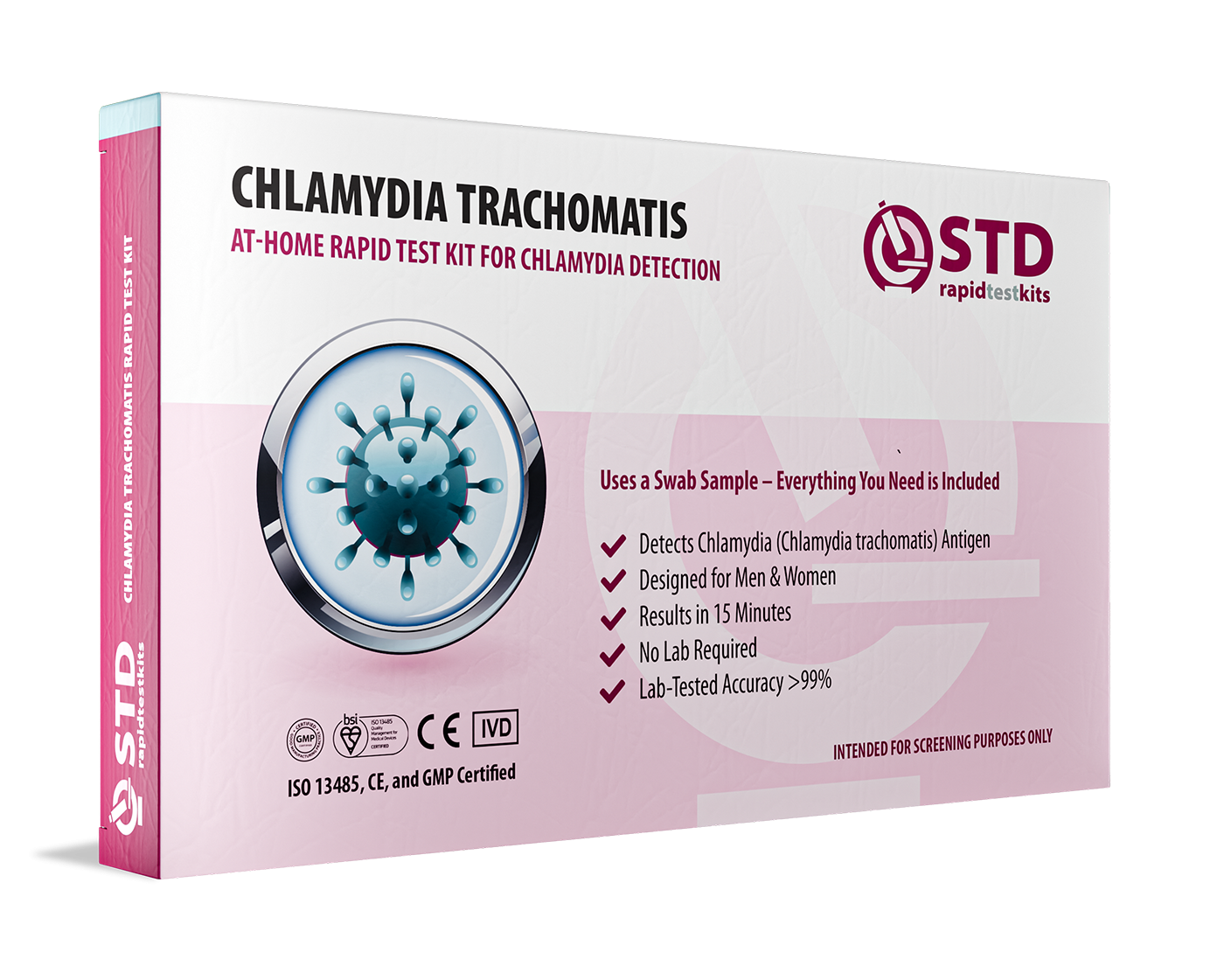
 For Men & Women
For Men & Women Results in Minutes
Results in Minutes No Lab Needed
No Lab Needed Private & Discreet
Private & DiscreetOrder Now $33.99 $49.00
Chlamydia͏͏ and͏͏ Tubal͏͏ Factor͏͏ Infertility͏͏ (TFI)
- Tubal͏͏ factor͏͏ infertility͏͏ (TFI)͏͏ occurs͏͏ when͏͏ fallopian͏͏ tubes͏͏ are͏͏ blocked,͏͏ preventing͏͏ sperm͏͏ from͏͏ reaching͏͏ the͏͏ egg.͏͏ Chlamydia͏͏ is͏͏ responsible͏͏ for͏͏ up͏͏ to͏͏ 30%͏͏ of͏͏ TFI͏͏ cases.
- A͏͏ study͏͏ published͏͏ in͏͏ The͏͏ Journal͏͏ of͏͏ Infectious͏͏ Diseases͏͏ found͏͏ that͏͏ 44%͏͏ of͏͏ women͏͏ with͏͏ tubal͏͏ infertility͏͏ had͏͏ antibodies͏͏ indicating͏͏ a͏͏ past͏͏ chlamydia͏͏ infection—suggesting͏͏ many͏͏ were͏͏ infected͏͏ without͏͏ ever͏͏ knowing.
Can͏͏ Chlamydia-Related͏͏ Infertility͏͏ Be͏͏ Reversed?
Once͏͏ the͏͏ fallopian͏͏ tubes͏͏ are͏͏ scarred͏͏ or͏͏ blocked,͏͏ natural͏͏ conception͏͏ becomes͏͏ difficult.͏͏ However,͏͏ some͏͏ treatments͏͏ may͏͏ help:
- Laparoscopic͏͏ surgery͏͏ to͏͏ remove͏͏ scar͏͏ tissue͏͏ (only͏͏ effective͏͏ in͏͏ mild͏͏ cases).
- In͏͏ vitro͏͏ fertilization͏͏ (IVF)͏͏ bypasses͏͏ blocked͏͏ tubes͏͏ to͏͏ allow͏͏ conception.
But͏͏ prevention͏͏ is͏͏ the͏͏ best͏͏ cure—early͏͏ testing͏͏ and͏͏ treatment͏͏ can͏͏ prevent͏͏ infertility͏͏ before͏͏ it͏͏ happens.
How͏͏ to͏͏ Protect͏͏ Your͏͏ Fertility͏͏ from͏͏ Chlamydia
- Get͏͏ tested͏͏ regularly—at-home͏͏ STD͏͏ tests͏͏ make͏͏ early͏͏ detection͏͏ easy.
- Use͏͏ protection—condoms͏͏ reduce͏͏ the͏͏ risk͏͏ of͏͏ transmission͏͏ by͏͏ 99%.
- Seek͏͏ immediate͏͏ treatment—antibiotics͏͏ can͏͏ cure͏͏ chlamydia͏͏ before͏͏ permanent͏͏ damage͏͏ occurs.
Next,͏͏ let’s͏͏ look͏͏ at͏͏ gonorrhea’s͏͏ impact͏͏ on͏͏ female͏͏ fertility.

How͏͏ Gonorrhea͏͏ Affects͏͏ Female͏͏ Fertility
What͏͏ is͏͏ Gonorrhea?
Gonorrhea͏͏ is͏͏ caused͏͏ by͏͏ Neisseria͏͏ gonorrhoeae,͏͏ a͏͏ bacterium͏͏ that͏͏ infects͏͏ the͏͏ cervix,͏͏ uterus,͏͏ fallopian͏͏ tubes,͏͏ and͏͏ ovaries.͏͏ While͏͏ less͏͏ common͏͏ than͏͏ chlamydia,͏͏ gonorrhea͏͏ spreads͏͏ more͏͏ aggressively͏͏ and͏͏ can͏͏ cause͏͏ irreversible͏͏ damage͏͏ more͏͏ quickly.
How͏͏ Gonorrhea͏͏ Causes͏͏ Infertility
Similar͏͏ to͏͏ chlamydia,͏͏ gonorrhea͏͏ leads͏͏ to͏͏ PID,͏͏ increasing͏͏ the͏͏ risk͏͏ of:
- Severe͏͏ tubal͏͏ scarring,͏͏ leading͏͏ to͏͏ infertility.
- Higher͏͏ risk͏͏ of͏͏ miscarriage͏͏ and͏͏ preterm͏͏ labor͏͏ in͏͏ pregnant͏͏ women.
- Chronic͏͏ pelvic͏͏ pain͏͏ due͏͏ to͏͏ repeated͏͏ infections.
According͏͏ to͏͏ the͏͏ CDC,͏͏ 10-20%͏͏ of͏͏ untreated͏͏ gonorrhea͏͏ cases͏͏ develop͏͏ into͏͏ PID.
Symptoms͏͏ of͏͏ Gonorrhea͏͏ That͏͏ May͏͏ Indicate͏͏ Fertility͏͏ Risks
Gonorrhea͏͏ symptoms͏͏ often͏͏ mimic͏͏ other͏͏ infections,͏͏ making͏͏ it͏͏ hard͏͏ to͏͏ recognize.͏͏ They͏͏ include:
- Yellow͏͏ or͏͏ greenish͏͏ vaginal͏͏ discharge
- Painful͏͏ urination
- Lower͏͏ abdominal͏͏ pain
- Irregular͏͏ bleeding͏͏ between͏͏ periods
Because͏͏ gonorrhea͏͏ can͏͏ spread͏͏ more͏͏ aggressively͏͏ than͏͏ chlamydia,͏͏ it͏͏ can͏͏ cause͏͏ infertility͏͏ within͏͏ months͏͏ if͏͏ left͏͏ untreated.
Check Your STD Status in Minutes
Test at Home with RemediumGonorrhea Test Kit
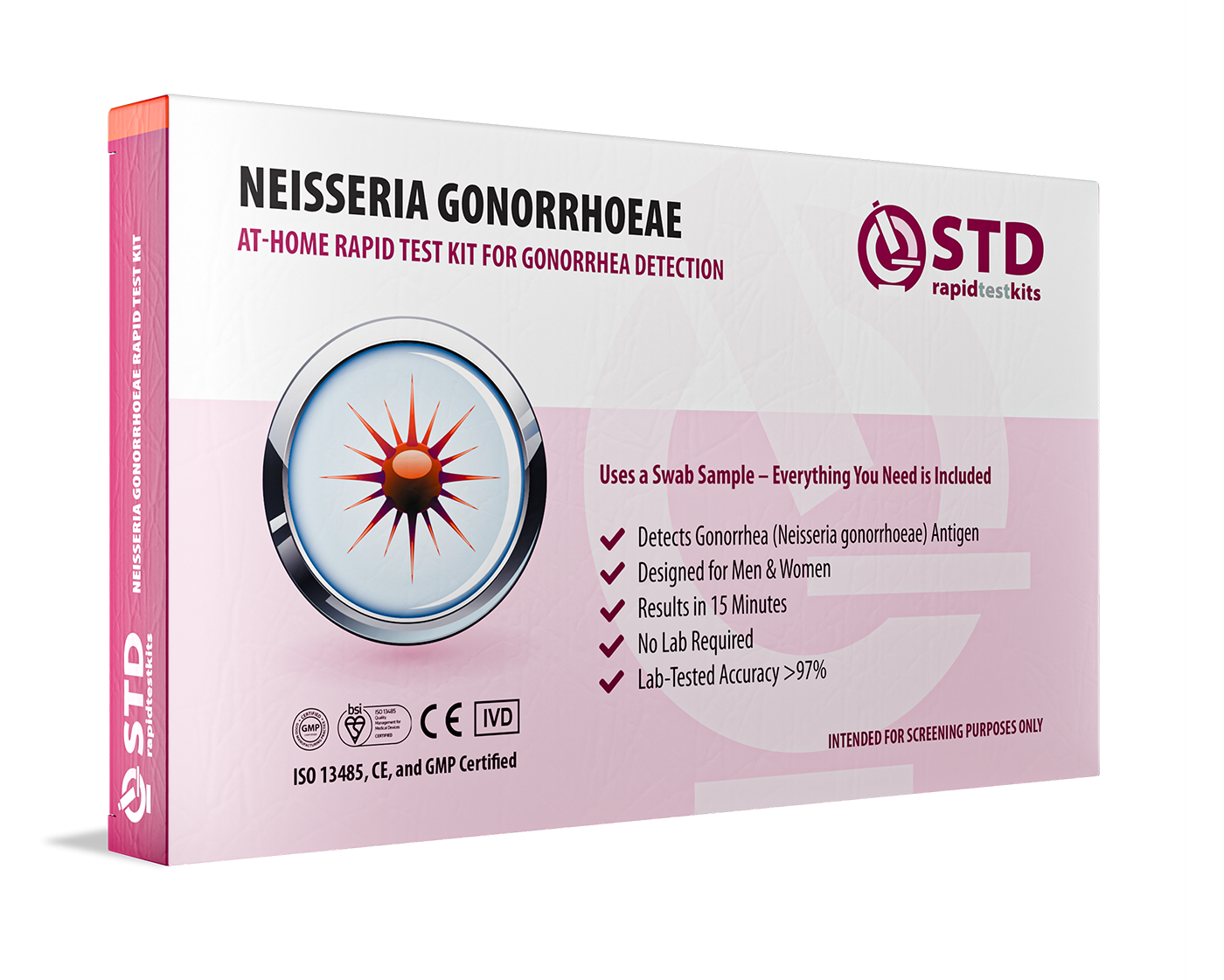
 For Men & Women
For Men & Women Results in Minutes
Results in Minutes No Lab Needed
No Lab Needed Private & Discreet
Private & DiscreetOrder Now $33.99 $49.00
Gonorrhea͏͏ and͏͏ Fallopian͏͏ Tube͏͏ Damage
A͏͏ study͏͏ in͏͏ The͏͏ Lancet͏͏ found͏͏ that͏͏ women͏͏ with͏͏ repeated͏͏ gonorrhea͏͏ infections͏͏ were͏͏ twice͏͏ as͏͏ likely͏͏ to͏͏ develop͏͏ severe͏͏ tubal͏͏ scarring,͏͏ even͏͏ after͏͏ antibiotic͏͏ treatment.
Can͏͏ Gonorrhea-Related͏͏ Infertility͏͏ Be͏͏ Reversed?
Unlike͏͏ chlamydia,͏͏ gonorrhea͏͏ causes͏͏ more͏͏ permanent͏͏ damage.͏͏ Once͏͏ the͏͏ fallopian͏͏ tubes͏͏ are͏͏ scarred,͏͏ natural͏͏ conception͏͏ is͏͏ nearly͏͏ impossible.͏͏ However,͏͏ women͏͏ may͏͏ still͏͏ conceive͏͏ via:
- IVF,͏͏ bypassing͏͏ the͏͏ fallopian͏͏ tubes͏͏ entirely.
- Surgical͏͏ interventions,͏͏ though͏͏ success͏͏ rates͏͏ vary.
How͏͏ to͏͏ Protect͏͏ Your͏͏ Fertility͏͏ from͏͏ Gonorrhea
- Routine͏͏ testing—especially͏͏ for͏͏ sexually͏͏ active͏͏ women͏͏ under͏͏ 25.
- Safe͏͏ sex͏͏ practices—condoms͏͏ drastically͏͏ lower͏͏ transmission͏͏ risks.
- Early͏͏ treatment—prevents͏͏ irreversible͏͏ damage.
Studies͏͏ and͏͏ Statistics͏͏ on͏͏ STD-Related͏͏ Infertility
Scientific͏͏ research͏͏ has͏͏ confirmed͏͏ the͏͏ direct͏͏ link͏͏ between͏͏ untreated͏͏ chlamydia,͏͏ gonorrhea,͏͏ and͏͏ infertility.͏͏ Below͏͏ are͏͏ key͏͏ studies͏͏ and͏͏ statistics͏͏ showcasing͏͏ the͏͏ severity͏͏ of͏͏ these͏͏ infections͏͏ and͏͏ their͏͏ long-term͏͏ impact͏͏ on͏͏ female͏͏ reproductive͏͏ health.
CDC͏͏ Data͏͏ on͏͏ Chlamydia͏͏ and͏͏ Gonorrhea-Related͏͏ Infertility
- Chlamydia͏͏ is͏͏ the͏͏ leading͏͏ cause͏͏ of͏͏ preventable͏͏ infertility͏͏ in͏͏ the͏͏ U.S.
- 10-15%͏͏ of͏͏ untreated͏͏ chlamydia͏͏ cases͏͏ progress͏͏ to͏͏ pelvic͏͏ inflammatory͏͏ disease͏͏ (PID).
- 20%͏͏ of͏͏ women͏͏ who͏͏ develop͏͏ PID͏͏ become͏͏ infertile͏͏ due͏͏ to͏͏ tubal͏͏ scarring.
- Gonorrhea͏͏ causes͏͏ PID͏͏ in͏͏ 10-20%͏͏ of͏͏ cases,͏͏ leading͏͏ to͏͏ severe͏͏ fallopian͏͏ tube͏͏ damage.
The͏͏ Lancet͏͏ Study͏͏ on͏͏ STD-Induced͏͏ Infertility
A͏͏ study͏͏ published͏͏ in͏͏ The͏͏ Lancet͏͏ found͏͏ that:
- Women͏͏ with͏͏ a͏͏ history͏͏ of͏͏ repeated͏͏ chlamydia͏͏ or͏͏ gonorrhea͏͏ infections͏͏ were͏͏ up͏͏ to͏͏ 3͏͏ times͏͏ more͏͏ likely͏͏ to͏͏ develop͏͏ tubal͏͏ factor͏͏ infertility͏͏ (TFI).
- Even͏͏ when͏͏ symptoms͏͏ were͏͏ mild͏͏ or͏͏ absent,͏͏ long-term͏͏ reproductive͏͏ damage͏͏ was͏͏ still͏͏ observed.
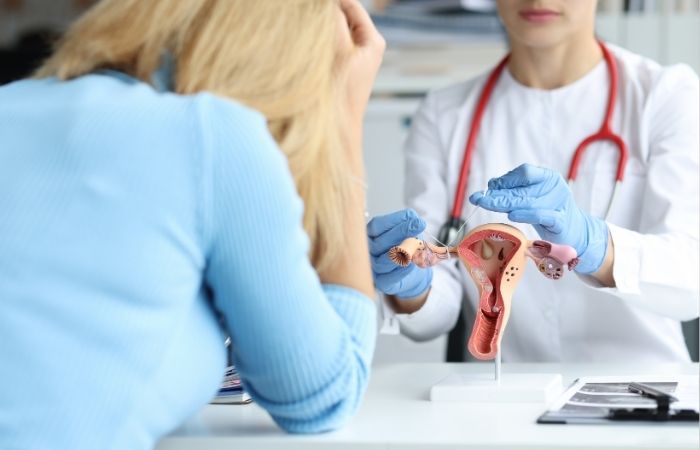
The͏͏ European͏͏ Journal͏͏ of͏͏ Obstetrics͏͏ &͏͏ Gynecology͏͏ Findings
- Ectopic͏͏ pregnancy͏͏ risk͏͏ increases͏͏ 6-fold͏͏ in͏͏ women͏͏ with͏͏ past͏͏ chlamydia͏͏ infections.
- 40%͏͏ of͏͏ women͏͏ diagnosed͏͏ with͏͏ unexplained͏͏ infertility͏͏ had͏͏ prior,͏͏ untreated͏͏ chlamydia.
The͏͏ Impact͏͏ of͏͏ Repeated͏͏ Infections
A͏͏ 2021͏͏ study͏͏ in͏͏ Clinical͏͏ Infectious͏͏ Diseases͏͏ showed͏͏ that:
- The͏͏ risk͏͏ of͏͏ infertility͏͏ increases͏͏ with͏͏ each͏͏ reinfection.
- Women͏͏ with͏͏ two͏͏ or͏͏ more͏͏ chlamydia͏͏ infections͏͏ were͏͏ 4͏͏ times͏͏ more͏͏ likely͏͏ to͏͏ experience͏͏ infertility.
- 50%͏͏ of͏͏ gonorrhea-related͏͏ infertility͏͏ cases͏͏ were͏͏ due͏͏ to͏͏ multiple͏͏ untreated͏͏ infections.
Testimonials͏͏ from͏͏ Women͏͏ Affected͏͏ by͏͏ Chlamydia͏͏ and͏͏ Gonorrhea
Hearing͏͏ from͏͏ real͏͏ women͏͏ who͏͏ have͏͏ struggled͏͏ with͏͏ infertility͏͏ due͏͏ to͏͏ STDs͏͏ helps͏͏ humanize͏͏ the͏͏ statistics.͏͏ Below͏͏ are͏͏ two͏͏ testimonials͏͏ from͏͏ sexual͏͏ health͏͏ awareness͏͏ websites.
"I͏͏ Had͏͏ No͏͏ Idea͏͏ Chlamydia͏͏ Could͏͏ Do͏͏ This"
"I͏͏ was͏͏ 26͏͏ when͏͏ my͏͏ husband͏͏ and͏͏ I͏͏ started͏͏ trying͏͏ for͏͏ a͏͏ baby.͏͏ After͏͏ a͏͏ year͏͏ of͏͏ no͏͏ success,͏͏ we͏͏ went͏͏ to͏͏ a͏͏ fertility͏͏ specialist.͏͏ That’s͏͏ when͏͏ I͏͏ learned͏͏ my͏͏ fallopian͏͏ tubes͏͏ were͏͏ completely͏͏ blocked.͏͏ I͏͏ had͏͏ chlamydia͏͏ years͏͏ ago,͏͏ but͏͏ I͏͏ never͏͏ knew͏͏ it͏͏ could͏͏ cause͏͏ infertility.͏͏ If͏͏ I͏͏ had͏͏ just͏͏ gotten͏͏ tested͏͏ earlier,͏͏ I͏͏ wouldn’t͏͏ be͏͏ in͏͏ this͏͏ situation͏͏ now."͏͏ —͏͏ Megan,͏͏ 31
"Gonorrhea͏͏ Took͏͏ Away͏͏ My͏͏ Ability͏͏ to͏͏ Have͏͏ a͏͏ Child͏͏ Naturally"
"I͏͏ got͏͏ gonorrhea͏͏ from͏͏ an͏͏ ex-boyfriend.͏͏ I͏͏ had͏͏ no͏͏ symptoms,͏͏ so͏͏ I͏͏ didn’t͏͏ know͏͏ until͏͏ a͏͏ routine͏͏ exam.͏͏ A͏͏ few͏͏ years͏͏ later,͏͏ when͏͏ I͏͏ tried͏͏ to͏͏ conceive,͏͏ I͏͏ found͏͏ out͏͏ my͏͏ tubes͏͏ were͏͏ scarred.͏͏ Now,͏͏ IVF͏͏ is͏͏ my͏͏ only͏͏ option.͏͏ I͏͏ wish͏͏ someone͏͏ had͏͏ told͏͏ me͏͏ earlier͏͏ how͏͏ serious͏͏ gonorrhea͏͏ could͏͏ be."͏͏ —͏͏ Rachel,͏͏ 34
Check Your STD Status in Minutes
Test at Home with RemediumChlamydia & Gonorrhea Test
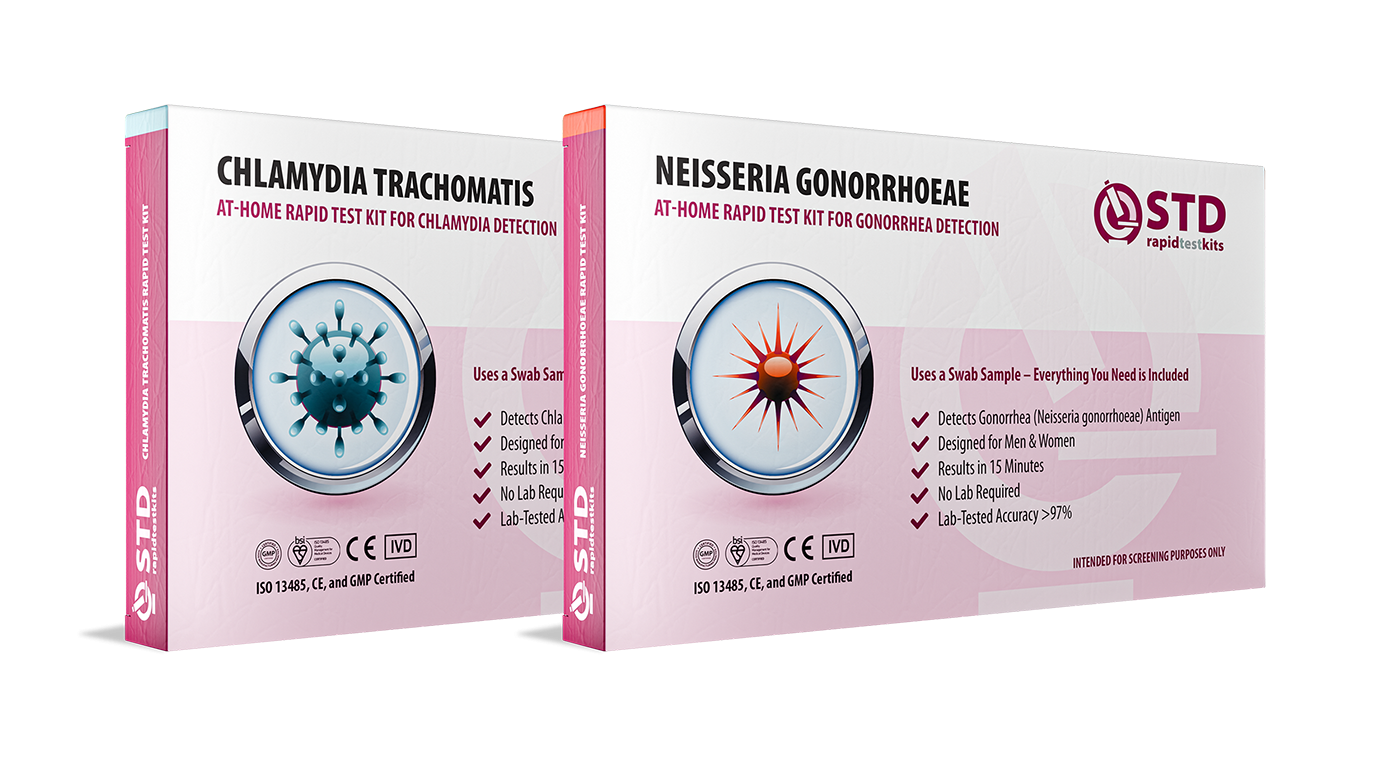
 For Men & Women
For Men & Women Results in Minutes
Results in Minutes No Lab Needed
No Lab Needed Private & Discreet
Private & DiscreetOrder Now $49.00 $98.00
For all 2 tests
Expert͏͏ Opinions͏͏ and͏͏ Medical͏͏ Quotes
Doctors͏͏ and͏͏ researchers͏͏ have͏͏ warned͏͏ about͏͏ the͏͏ infertility͏͏ risks͏͏ associated͏͏ with͏͏ untreated͏͏ STDs.͏͏ Below͏͏ are͏͏ expert͏͏ opinions͏͏ from͏͏ leading͏͏ medical͏͏ professionals.
Dr.͏͏ Emily͏͏ Carter,͏͏ OB-GYN͏͏ (CDC͏͏ Expert͏͏ on͏͏ STDs͏͏ &͏͏ Fertility)
"Chlamydia͏͏ and͏͏ gonorrhea͏͏ are͏͏ among͏͏ the͏͏ most͏͏ preventable͏͏ causes͏͏ of͏͏ infertility.͏͏ The͏͏ problem͏͏ is͏͏ that͏͏ these͏͏ infections͏͏ are͏͏ often͏͏ silent,͏͏ and͏͏ women͏͏ only͏͏ learn͏͏ about͏͏ them͏͏ when͏͏ they͏͏ struggle͏͏ to͏͏ conceive.͏͏ Regular͏͏ screening͏͏ and͏͏ early͏͏ treatment͏͏ can͏͏ prevent͏͏ lifelong͏͏ fertility͏͏ issues."
Dr.͏͏ Michael͏͏ Green,͏͏ Reproductive͏͏ Endocrinologist
"Pelvic͏͏ inflammatory͏͏ disease,͏͏ caused͏͏ by͏͏ untreated͏͏ STDs,͏͏ is͏͏ responsible͏͏ for͏͏ nearly͏͏ 25%͏͏ of͏͏ female͏͏ infertility͏͏ cases.͏͏ Once͏͏ the͏͏ fallopian͏͏ tubes͏͏ are͏͏ damaged,͏͏ the͏͏ ability͏͏ to͏͏ conceive͏͏ naturally͏͏ is͏͏ drastically͏͏ reduced."
Dr.͏͏ Sarah͏͏ Mitchell,͏͏ Fertility͏͏ Specialist
"The͏͏ biggest͏͏ misconception͏͏ is͏͏ that͏͏ STDs͏͏ only͏͏ affect͏͏ people͏͏ who͏͏ show͏͏ symptoms.͏͏ In͏͏ reality,͏͏ silent͏͏ infections͏͏ are͏͏ the͏͏ most͏͏ dangerous͏͏ because͏͏ they͏͏ go͏͏ untreated,͏͏ leading͏͏ to͏͏ infertility.͏͏ Routine͏͏ testing͏͏ should͏͏ be͏͏ a͏͏ priority͏͏ for͏͏ all͏͏ sexually͏͏ active͏͏ women."
FAQs
1.͏͏ Can͏͏ chlamydia͏͏ or͏͏ gonorrhea͏͏ make͏͏ me͏͏ infertile͏͏ after͏͏ just͏͏ one͏͏ infection?
While͏͏ one͏͏ infection͏͏ doesn’t͏͏ always͏͏ lead͏͏ to͏͏ infertility,͏͏ even͏͏ a͏͏ single͏͏ untreated͏͏ case͏͏ can͏͏ cause͏͏ PID,͏͏ scarring,͏͏ or͏͏ other͏͏ reproductive͏͏ damage.͏͏ The͏͏ risk͏͏ increases͏͏ with͏͏ each͏͏ reinfection.
2.͏͏ How͏͏ long͏͏ does͏͏ it͏͏ take͏͏ for͏͏ chlamydia͏͏ or͏͏ gonorrhea͏͏ to͏͏ cause͏͏ infertility?
It͏͏ varies,͏͏ but͏͏ damage͏͏ can͏͏ start͏͏ within͏͏ months͏͏ to͏͏ a͏͏ few͏͏ years͏͏ if͏͏ the͏͏ infection͏͏ progresses͏͏ to͏͏ PID.
3.͏͏ Can͏͏ I͏͏ get͏͏ pregnant͏͏ if͏͏ I’ve͏͏ had͏͏ PID͏͏ from͏͏ chlamydia͏͏ or͏͏ gonorrhea?
Yes,͏͏ but͏͏ it͏͏ depends͏͏ on͏͏ the͏͏ severity͏͏ of͏͏ the͏͏ scarring.͏͏ Some͏͏ women͏͏ may͏͏ conceive͏͏ naturally,͏͏ while͏͏ others͏͏ may͏͏ need͏͏ fertility͏͏ treatments͏͏ like͏͏ IVF.
4.͏͏ Are͏͏ there͏͏ warning͏͏ signs͏͏ that͏͏ chlamydia͏͏ or͏͏ gonorrhea͏͏ have͏͏ affected͏͏ my͏͏ fertility?
Unfortunately,͏͏ no͏͏ clear͏͏ early͏͏ signs͏͏ exist.͏͏ However,͏͏ long-term͏͏ pelvic͏͏ pain,͏͏ irregular͏͏ periods,͏͏ or͏͏ ectopic͏͏ pregnancy͏͏ can͏͏ be͏͏ indicators.
5.͏͏ Can͏͏ past͏͏ STD͏͏ infections͏͏ show͏͏ up͏͏ on͏͏ fertility͏͏ tests?
Yes,͏͏ blood͏͏ tests͏͏ can͏͏ detect͏͏ antibodies͏͏ to͏͏ past͏͏ infections,͏͏ and͏͏ imaging͏͏ tests͏͏ (like͏͏ an͏͏ HSG)͏͏ can͏͏ reveal͏͏ tubal͏͏ damage.
6.͏͏ Can͏͏ men͏͏ also͏͏ become͏͏ infertile͏͏ from͏͏ chlamydia͏͏ or͏͏ gonorrhea?
Yes,͏͏ both͏͏ infections͏͏ can͏͏ affect͏͏ sperm͏͏ quality͏͏ and͏͏ cause͏͏ conditions͏͏ like͏͏ epididymitis,͏͏ leading͏͏ to͏͏ male͏͏ infertility.
7.͏͏ How͏͏ can͏͏ I͏͏ lower͏͏ my͏͏ risk͏͏ of͏͏ STD-related͏͏ infertility?
- Use͏͏ condoms͏͏ consistently
- Get͏͏ tested͏͏ regularly͏͏ (especially͏͏ if͏͏ you͏͏ have͏͏ multiple͏͏ partners)
- Seek͏͏ treatment͏͏ immediately͏͏ if͏͏ you͏͏ test͏͏ positive
8.͏͏ Does͏͏ treatment͏͏ reverse͏͏ the͏͏ damage͏͏ caused͏͏ by͏͏ chlamydia͏͏ or͏͏ gonorrhea?
Treatment͏͏ cures͏͏ the͏͏ infection͏͏ but͏͏ doesn’t͏͏ undo͏͏ existing͏͏ damage.͏͏ Early͏͏ detection͏͏ is͏͏ critical͏͏ to͏͏ preventing͏͏ long-term͏͏ fertility͏͏ issues.
9.͏͏ How͏͏ often͏͏ should͏͏ I͏͏ get͏͏ tested͏͏ for͏͏ chlamydia͏͏ and͏͏ gonorrhea?
The͏͏ CDC͏͏ recommends͏͏ annual͏͏ screening͏͏ for͏͏ all͏͏ sexually͏͏ active͏͏ women͏͏ under͏͏ 25͏͏ and͏͏ for͏͏ those͏͏ with͏͏ new͏͏ or͏͏ multiple͏͏ partners.
10.͏͏ Where͏͏ can͏͏ I͏͏ get͏͏ tested͏͏ for͏͏ STDs?
You͏͏ can͏͏ get͏͏ tested͏͏ at:
- Doctor’s͏͏ offices͏͏ and͏͏ sexual͏͏ health͏͏ clinics
- Planned͏͏ Parenthood͏͏ or͏͏ public͏͏ health͏͏ centers
- At-home͏͏ STD͏͏ test͏͏ kits͏͏ for͏͏ private,͏͏ easy͏͏ testing
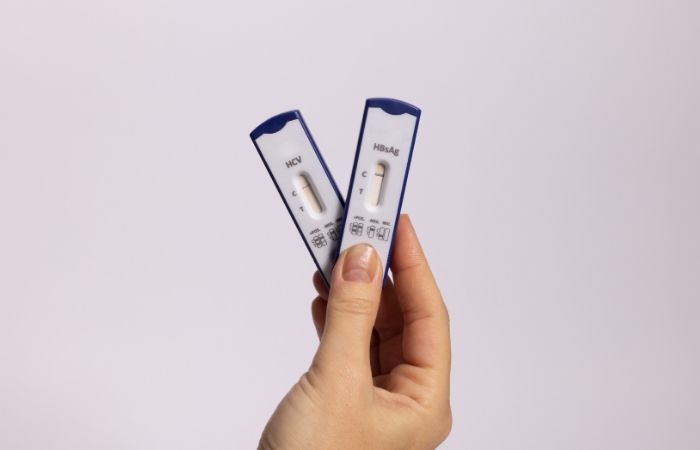
Protect͏͏ Your͏͏ Fertility:͏͏ Get͏͏ Tested͏͏ Today
Chlamydia͏͏ and͏͏ gonorrhea͏͏ are͏͏ entirely͏͏ preventable͏͏ causes͏͏ of͏͏ infertility,͏͏ yet͏͏ they͏͏ continue͏͏ to͏͏ impact͏͏ thousands͏͏ of͏͏ women͏͏ each͏͏ year.͏͏ The͏͏ best͏͏ way͏͏ to͏͏ protect͏͏ your͏͏ reproductive͏͏ health͏͏ is͏͏ by͏͏ getting͏͏ tested͏͏ regularly͏͏ and͏͏ seeking͏͏ treatment͏͏ immediately.
Take͏͏ Action͏͏ Now:
- Use͏͏ at-home͏͏ STD͏͏ test͏͏ kits͏͏ for͏͏ privacy͏͏ and͏͏ convenience.
- Talk͏͏ to͏͏ your͏͏ doctor͏͏ about͏͏ STD͏͏ screening.
- Practice͏͏ safe͏͏ sex͏͏ to͏͏ reduce͏͏ your͏͏ risk͏͏ of͏͏ infection.
Your͏͏ fertility͏͏ matters.͏͏ Don’t͏͏ wait—get͏͏ tested͏͏ today!
Sources
1.- National Center for Biotechnology Information (NCBI) - Chlamydia and Female Infertility
2.- CDC - Chlamydia and Infertility
3.- Wikipedia - Tubal Factor Infertility










